2021 Symposium
PRESENTERS & PROJECTS
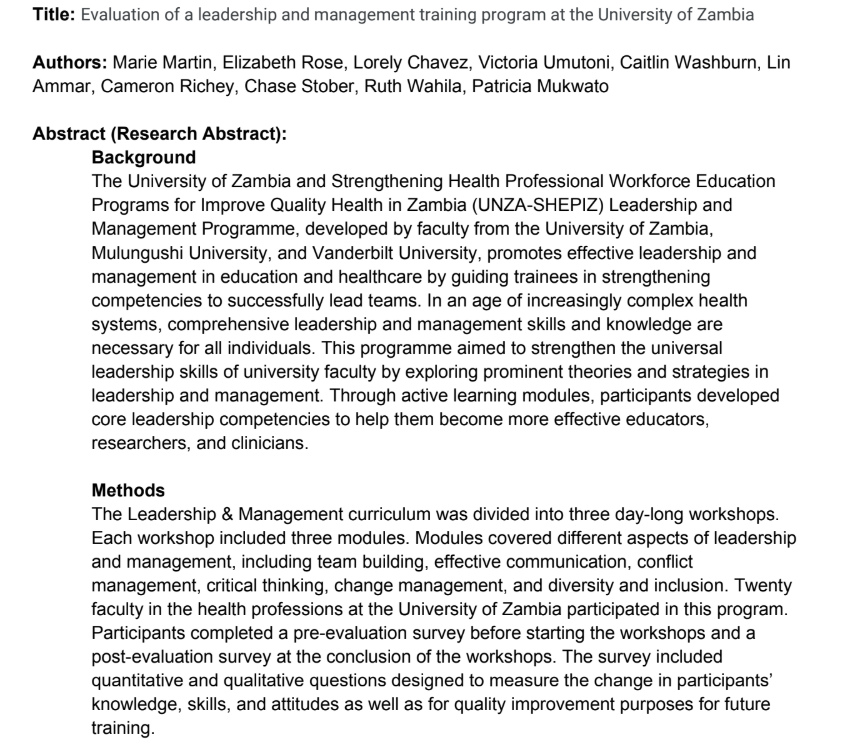
|
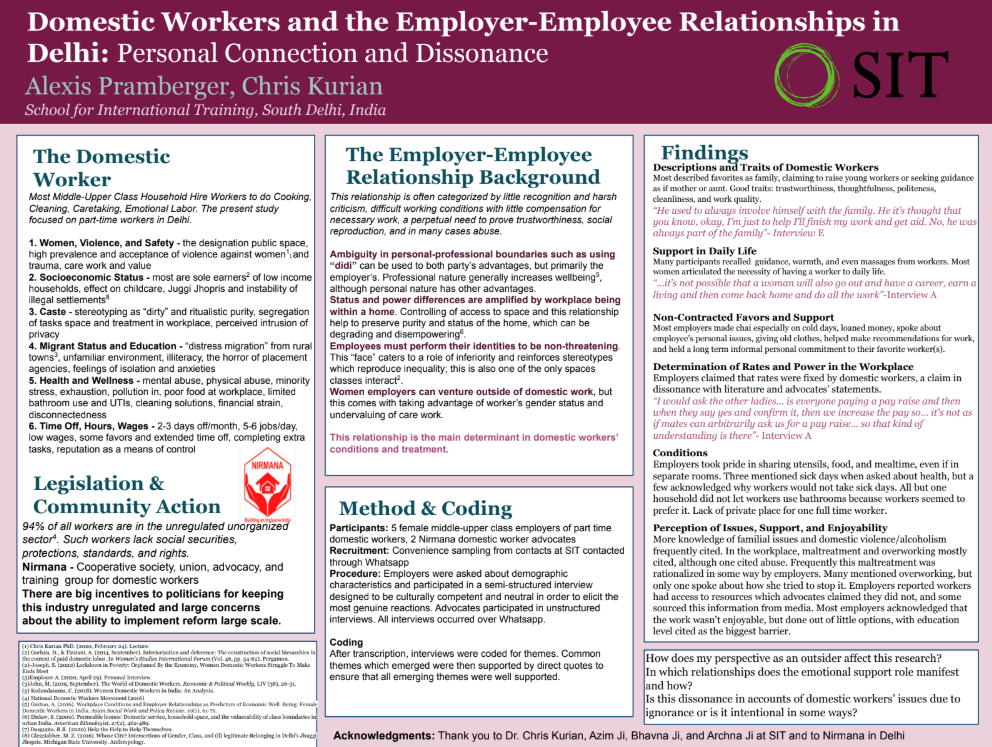
|
|
Application of the Mentoring Competency Assessment (MCA) Tool at the University of Zambia (UNZA) Mentor Training Program |
Domestic Workers and the Employer-Employee Relationship in |
|
Presenters: Aditi Deepak, Océane Parker, Elizabeth Rose, Diane Gavarkavich, UNZA faculty members, Marie Martin |
Presenters: Alexis Pramberger and Chris Kurian |
| View Abstract | |
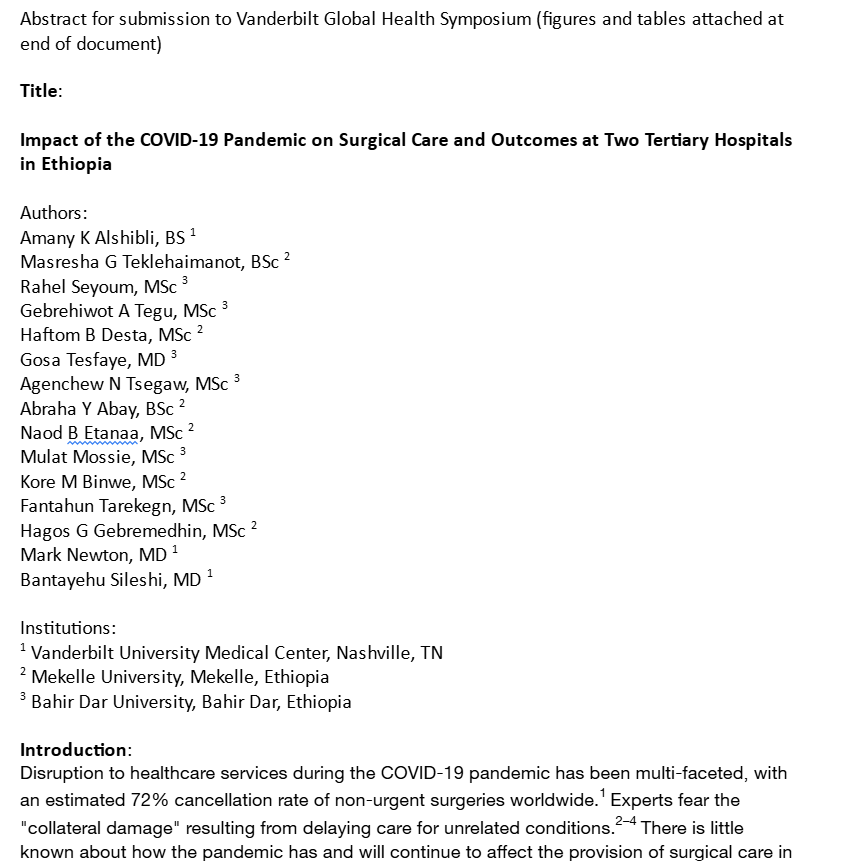
|

|
|
Global Surgery During the COVID-19 Pandemic: A retrospective study of surgical care and outcomes at two tertiary hospitals in Ethiopia |
HIV-related stigma and psychological distress in a cohort of patients receiving antiretroviral therapy in Nigeria. |
|
Presenters: Amany K Alshibli, Masresha G Teklehaimanot, Rahel Seyoum, Gebrehiwot A Tegu, Haftom B Desta, Gosa Tesfaye, Agenchew N Tsegaw, Abraha Y Abay, Naod B Etanaa, Mulat Mossie, Kore M Binwe, Fantahun Tarekegn, Hagos G Gebremedhin, Mark Newton, and Bantayehu Sileshi |
Presenters: Bentley Akoko and Aima Ahonkhai |
| View Abstract | |
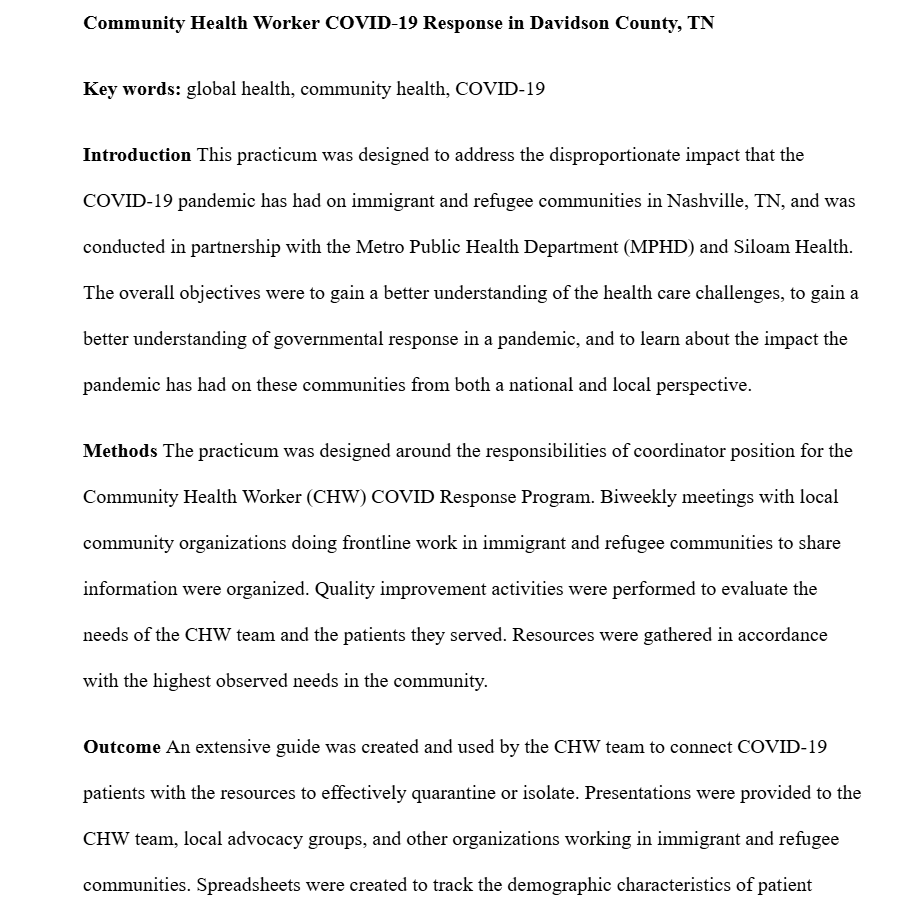
|
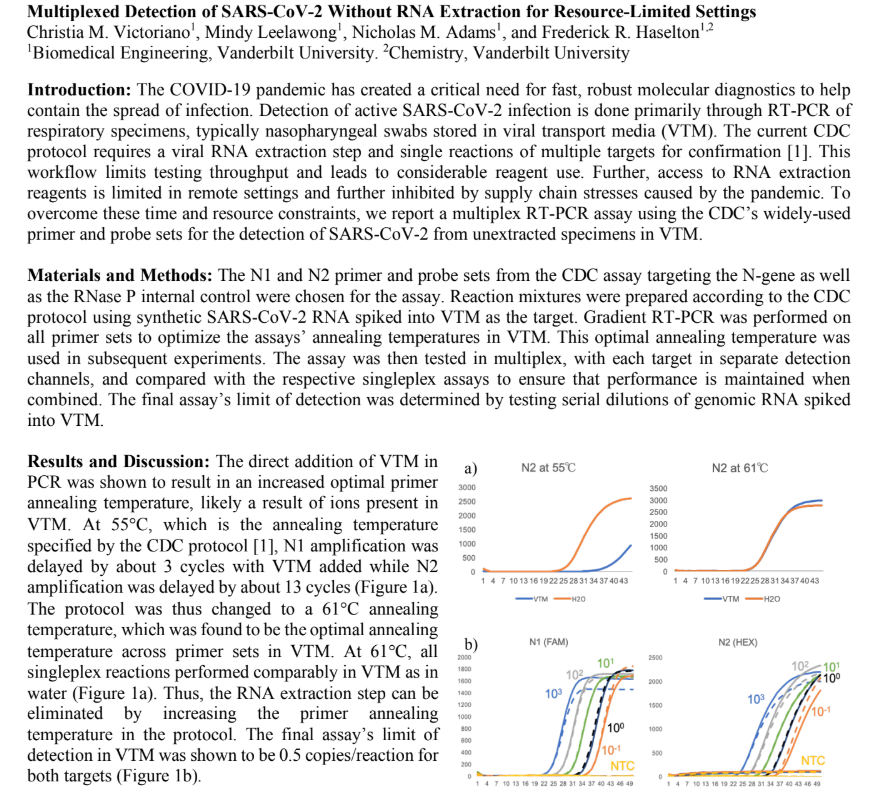
|
|
Community Health Worker COVID-19 Response in Davidson County, TN |
Multiplexed Detection of SARS-CoV-2 Without RNA Extraction for Resource-Limited Settings |
|
Presenters: Caitlin Washburn |
Presenters: Christia M. Victoriano, Mindy Leelawong, Nicholas M. Adams, Frederick R. Haselton |
| View Abstract | |
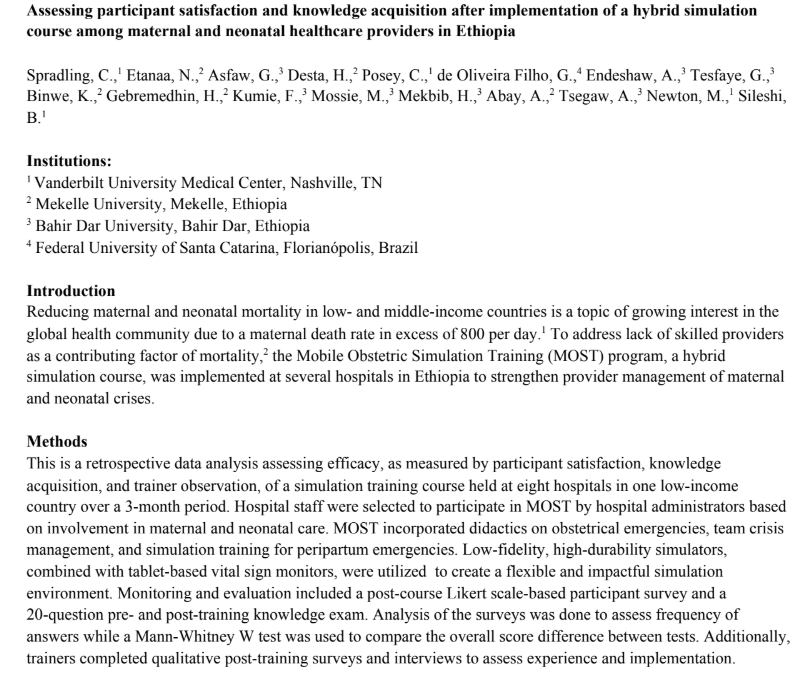
|
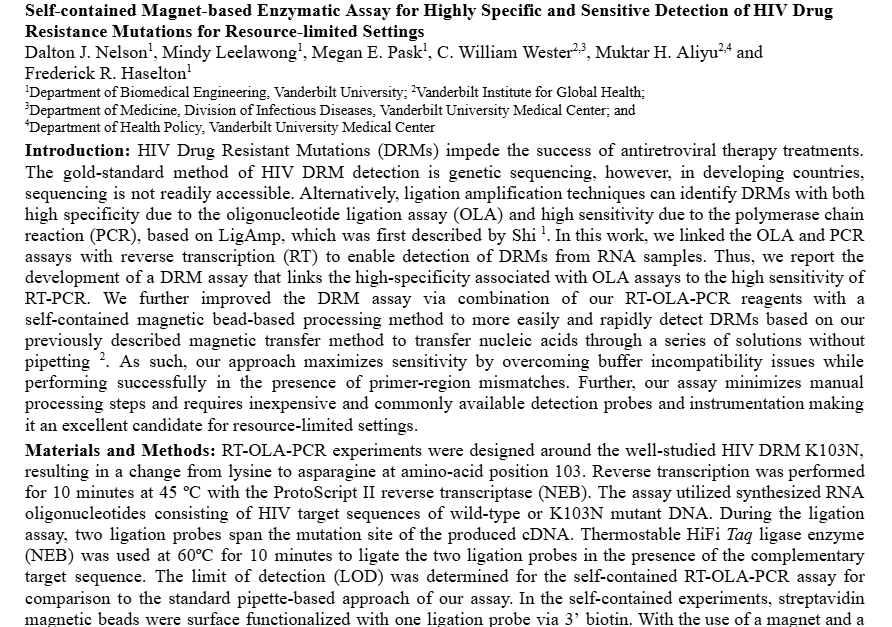
|
|
Implementation of a Cost-Effective Hybrid Obstetric & Neonatal |
Self-contained Magnet-based Enzymatic Assay for Highly Specific and Sensitive Detection of HIV Drug Resistance Mutations for Resource-constrained Settings |
|
Presenter: Spradling, C., Etanaa, N., Asfaw, G., Desta, H., Posey, C., de Oliveira Filho, G., Endeshaw, A., Tesfaye, G., Binwe, K., Gebremedhin, H., Kumie, F., Mossie, M., Mekbib, H., Abay, A., Tsegaw, A., Newton, M., Sileshi, B. |
Presenters: Dalton Nelson, Mindy Leelawong, Megan Pask, C. William Wester, Muktar Aliyu, Fredrick Haselton |
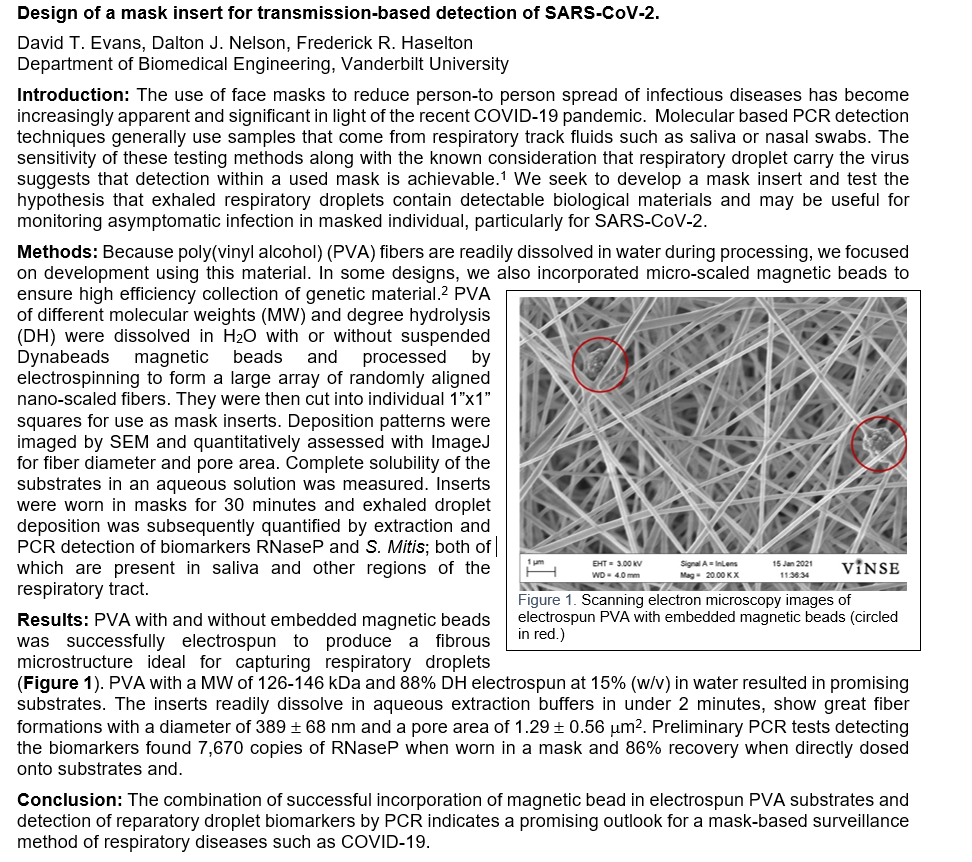
|
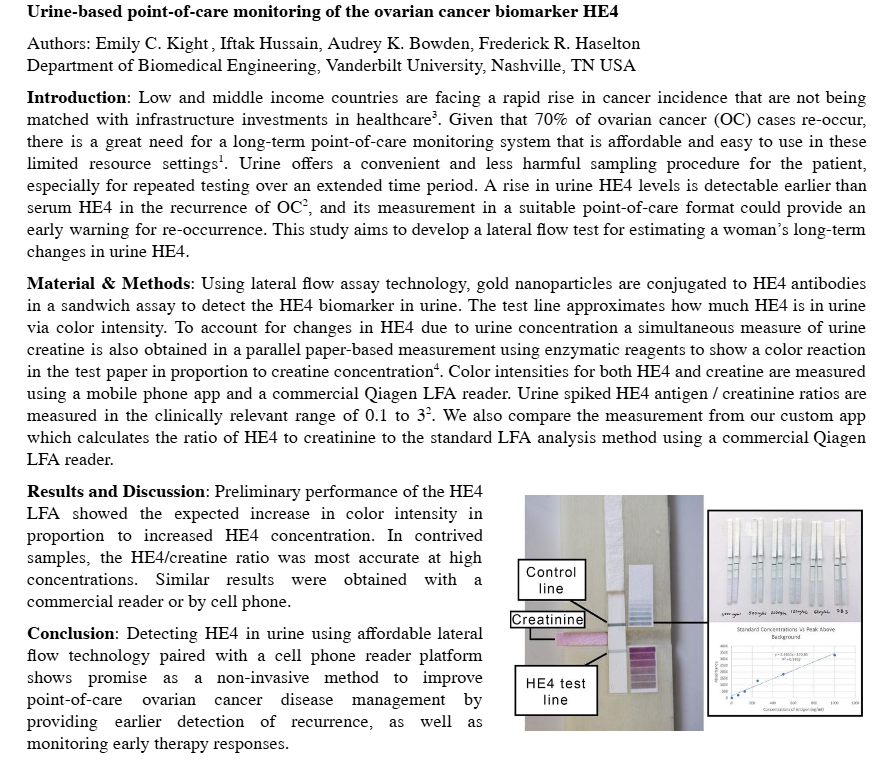
|
|
Design of a mask insert for transmission-based detection of SARS-CoV-2. |
Urine-based point-of-care monitoring of the ovarian cancer biomarker HE4 |
|
Presenters: David T. Evans, Dalton J. Nelson, Frederick R. Haselton |
Presenters: Emily C. Kight , Iftak Hussain, Audrey K. Bowden, Frederick R. Haselton |
| View Abstract | |
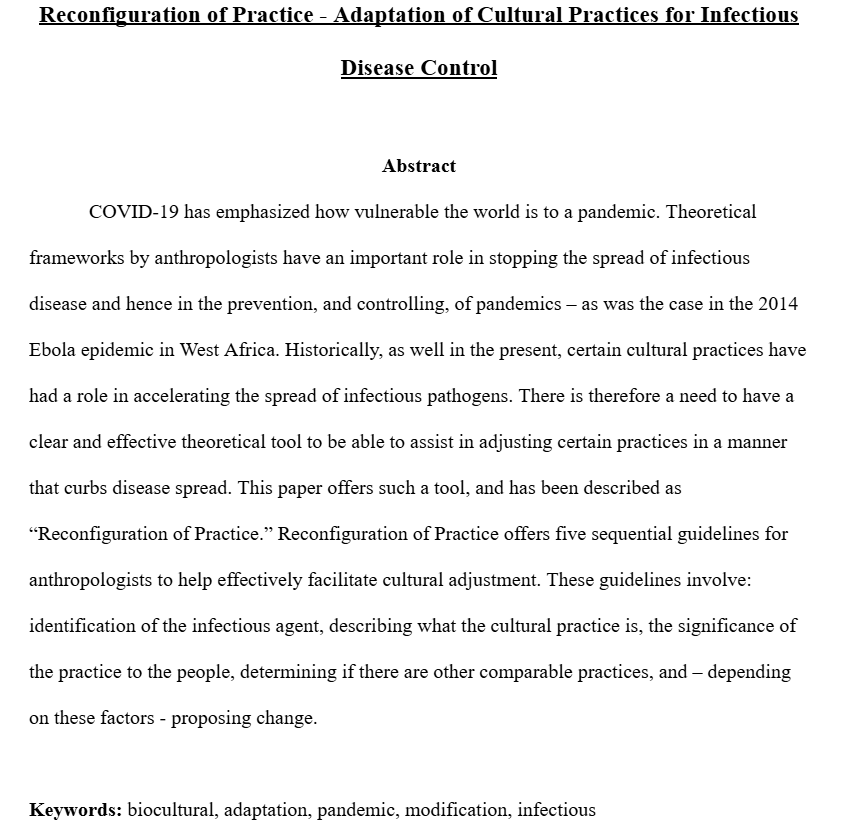
|
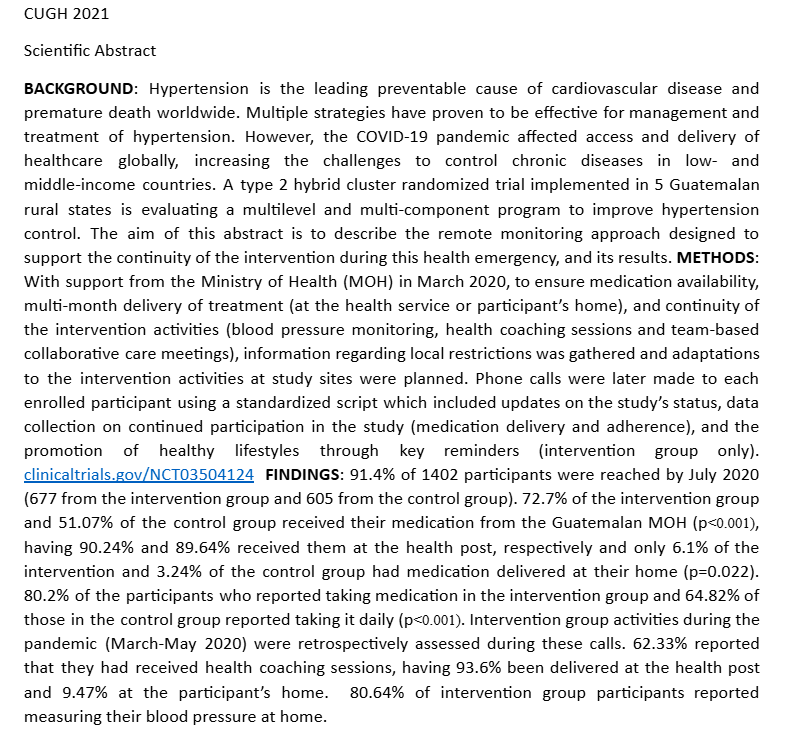
|
|
Reconfiguration of Practice - Adaptation of Cultural Practices for |
Multicomponent Intervention to Improve Hypertension Control in Central America |
|
Presenter: Karan Varshney |
Presenter: Kristyne Mansilla |
| View Abstract | |
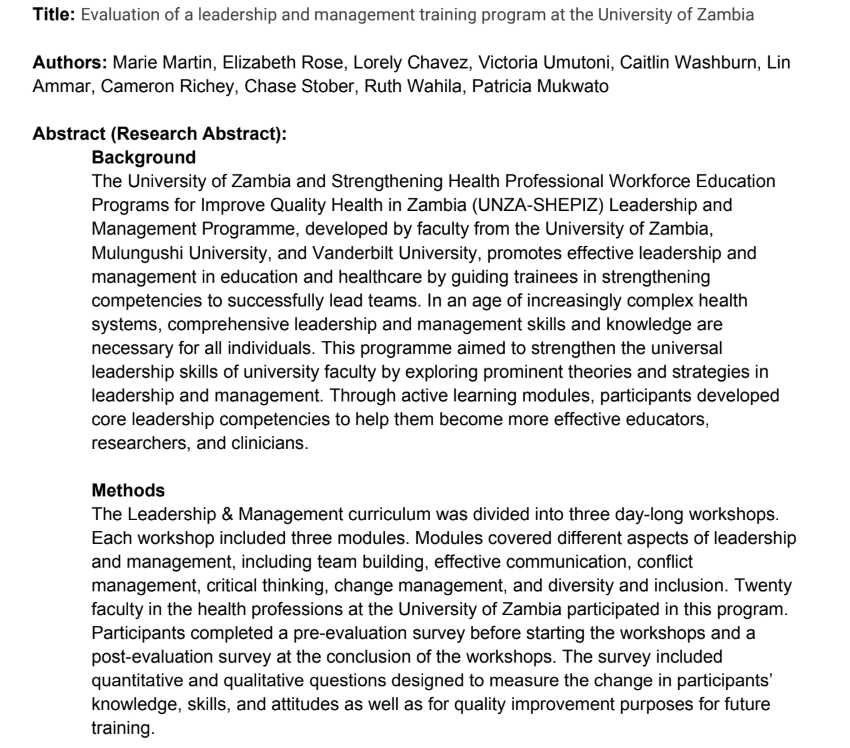
|
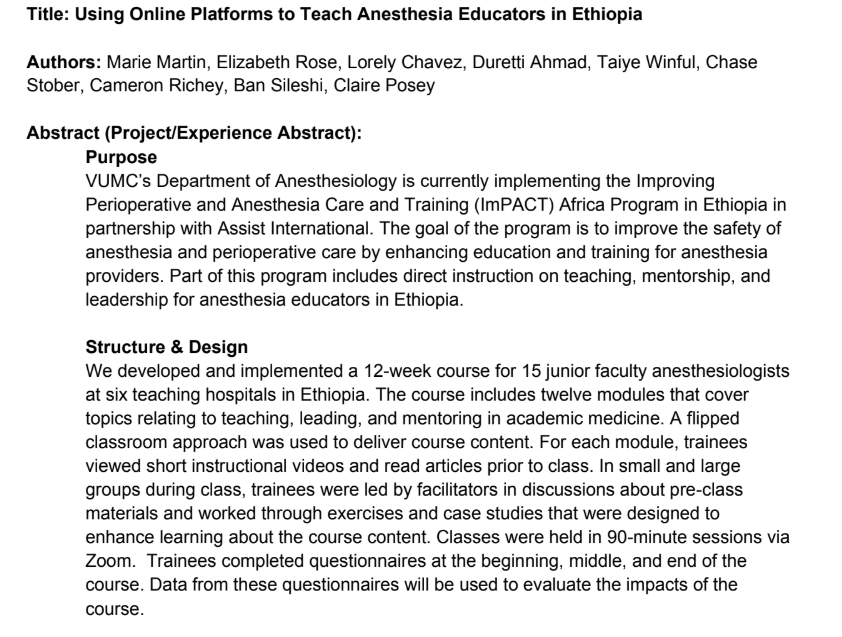
|
|
Evaluation of a leadership and management training program at the University of Zambia |
Using Online Platforms to Teach Anesthesia Educators in Ethiopia |
|
Presenters: Lin Ammar, Marie Martin, Elizabeth Rose, Lorely Chavez, Victoria Umutoni, Caitlin Washburn, Cameron Richey, Chase Stober, Ruth Wahila, Patricia Mukwato |
Presenters: Lorely Chavez, Duretti Ahmad, Marie Martin, Elizabeth Rose, Taiye Winful, Chase |
| View Abstract | |
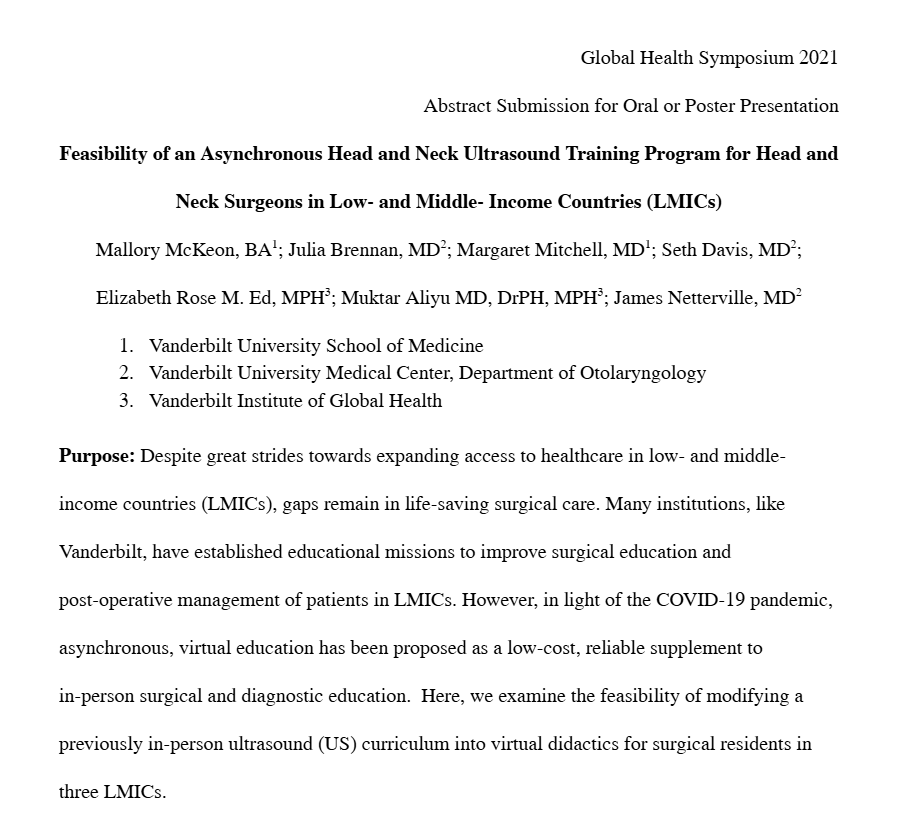
|
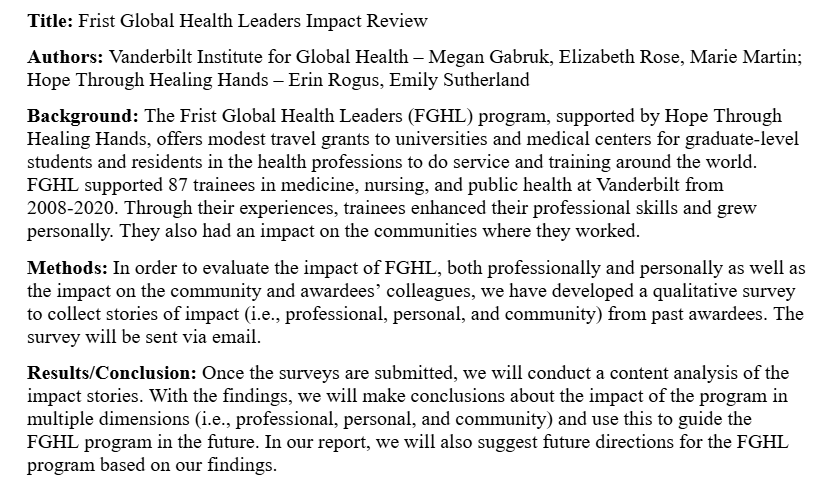
|
|
Feasibility of an Asynchronous Head and Neck Ultrasound |
Frist Global Health Leaders Program: Supporting Global Health Trainees and Building Self-sustaining Caregiver Capacity in Underserved Communities |
|
Presenters: Mallory McKeon, Julia Brennan, Margaret Mitchell, Seth Davis, Elizabeth Rose M. Ed, Muktar Aliyu, James Netterville |
Presenters: Megan Gabruk, Elizabeth Rose, Marie Martin, Erin Rogus, Emily Sutherland |
| View Abstract | |
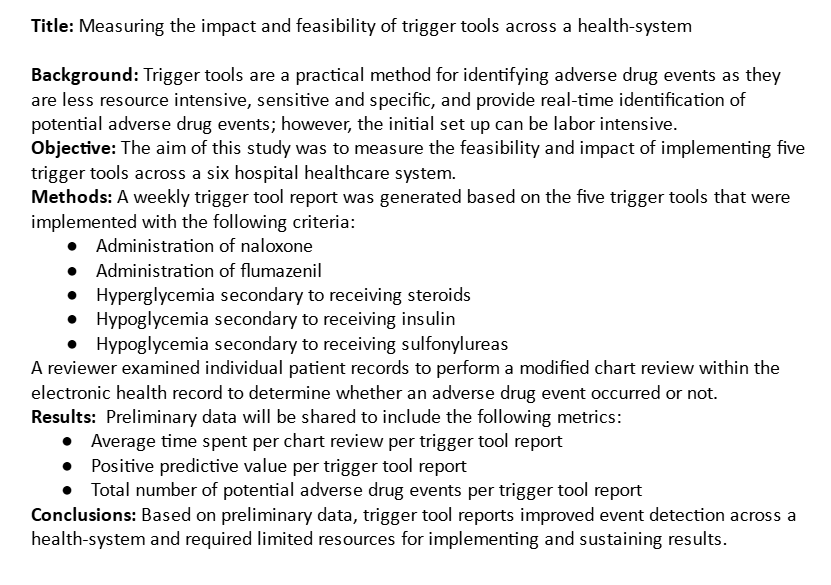
|
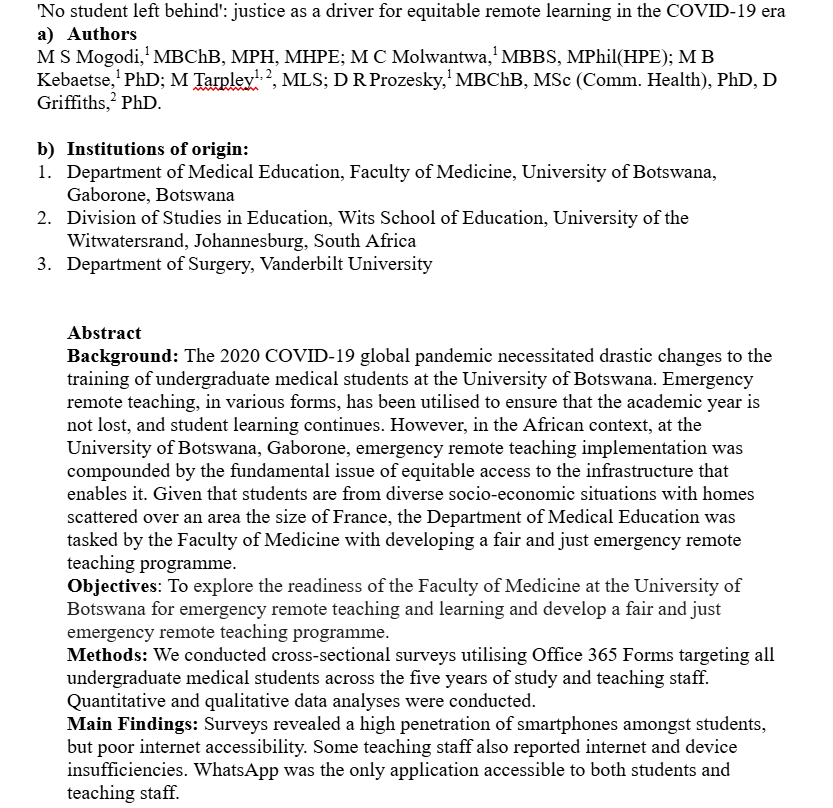
|
|
Measuring the impact and feasibility of trigger tools across a health-system |
‘No student left behind’: justice as a driver for equitable remote |
|
Presenter: Michael C. Dejos |
Presenters: Mpho S Mogodi, M. C. Molwantwa,1, M. B. Kebaetse, Margaret Tarpley, D. R. Prozesky, D. Griffiths |
| View Abstract | |
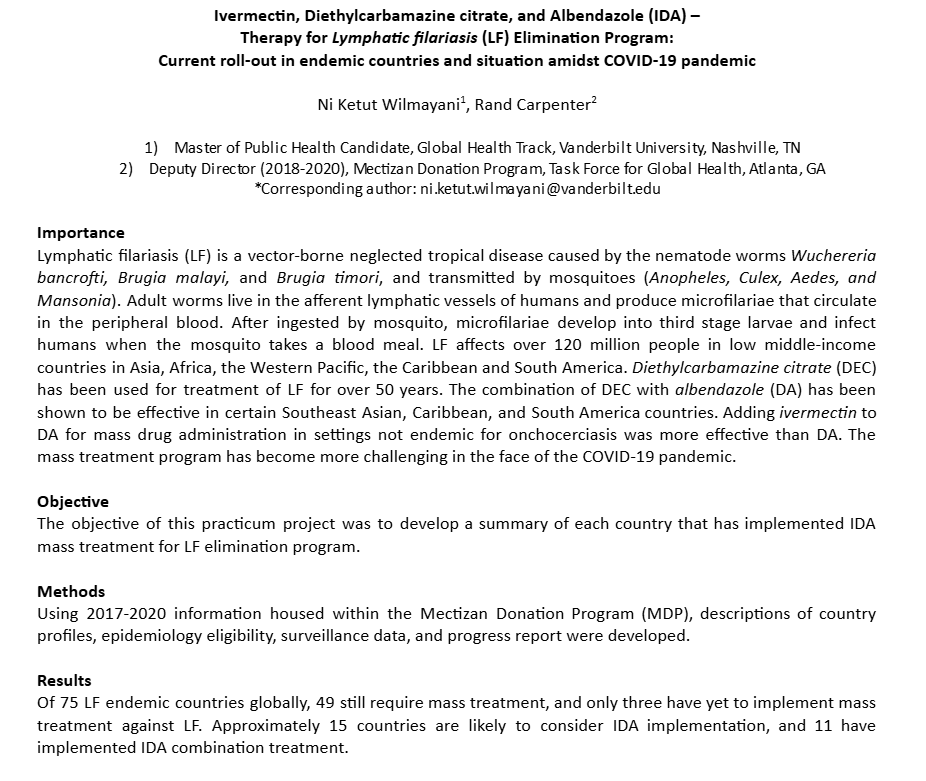
|
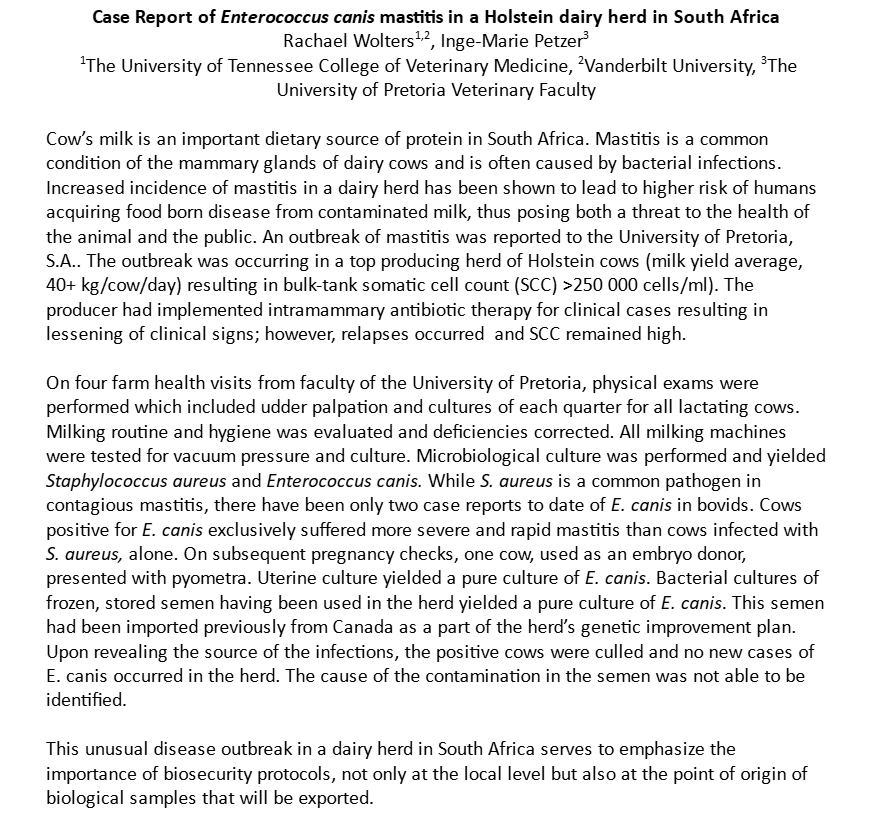
|
|
Ivermectin, Diethylcarbamazine citrate, and Albendazole (IDA) –Therapy for Lymphatic filariasis (LF) Elimination Program: Current roll-out in endemic countries and situation amidst COVID-19 pandemic |
Contact tracing” in dairy cows: a veterinary case report of |
|
Presenters: Ni Ketut Wilmayani and Rand Carpenter |
Presenter: Rachael Wolters and Inge-Marie Petzer |
| View Abstract | |
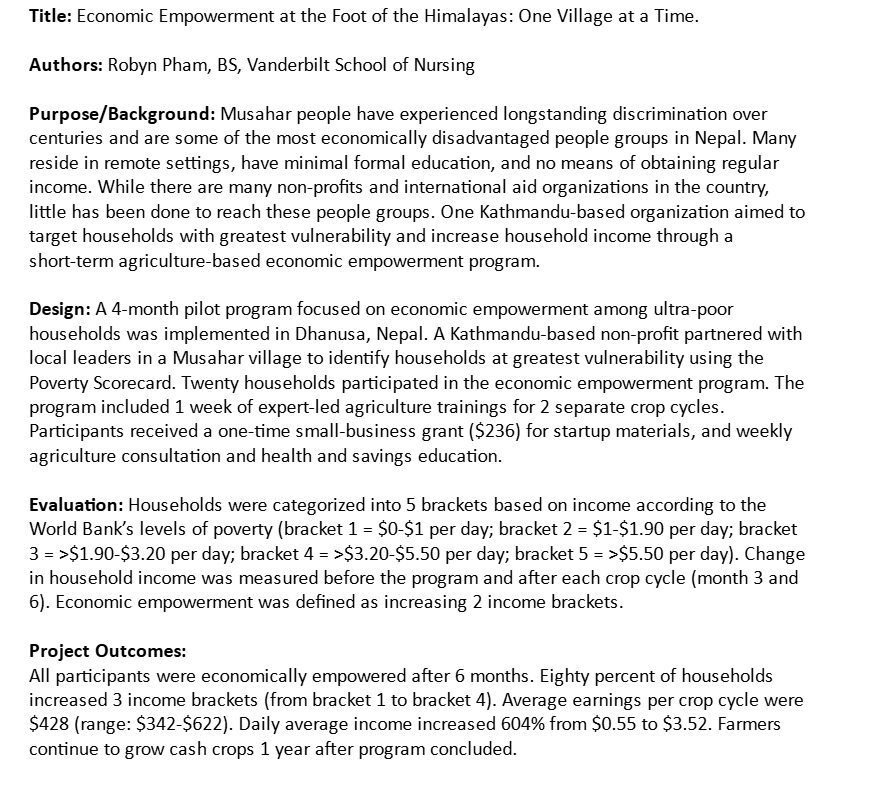
|
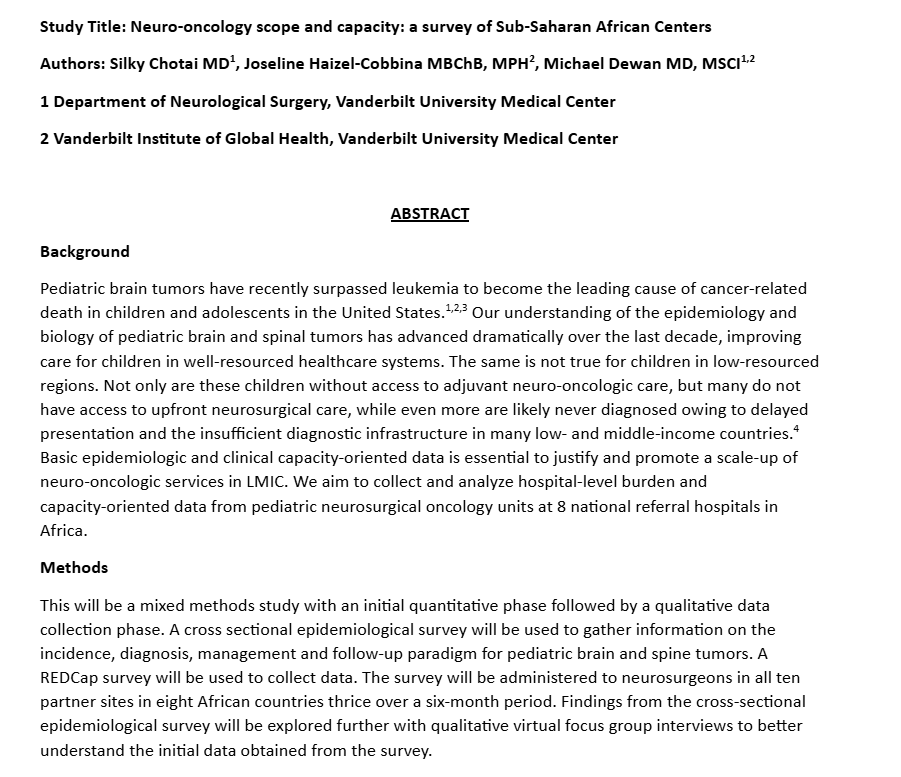
|
|
Economic Empowerment at the Foot of the Himalayas: One Village at a Time |
Neuro-oncology scope and capacity: a survey of Sub-Saharan African Centers |
|
Presenter: Robyn Pham |
Presenters: Silky Chotai, Joseline Haizel-Cobbina, Michael Dewan |
| View Abstract | |
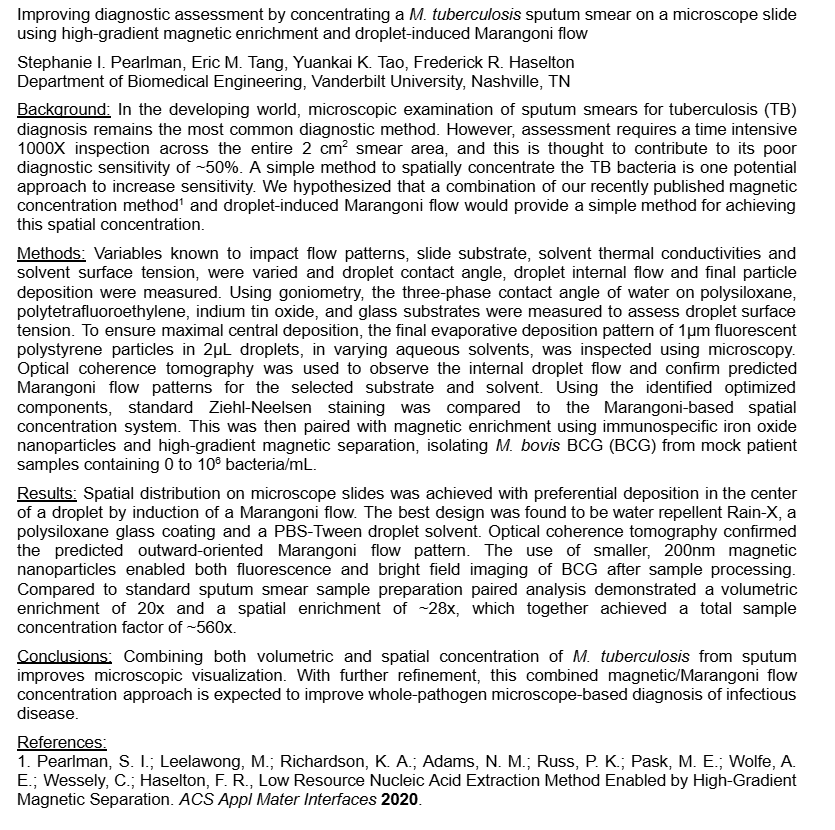
|
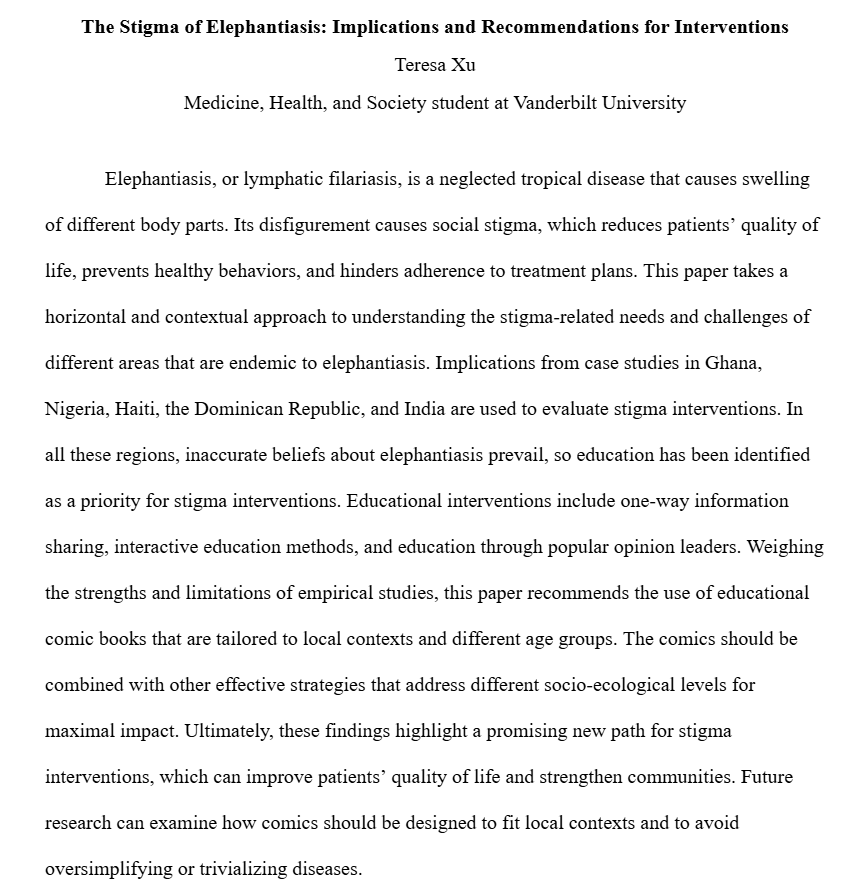
|
|
Improving diagnostic assessment by concentrating a M. tuberculosis sputum smear on a microscope slide using high-gradient magnetic enrichment and droplet-induced Marangoni flow |
The Stigma of Elephantiasis |
|
Presenters: Stephanie I. Pearlman, Eric M. Tang, Yuankai K. Tao, Frederick R. Haselton |
Presenter: Teresa Xu |
| View Abstract | |

|
|
|
The association between smoking and anal human papillomavirus in the HPV infection in men study |
|
|
|
|
